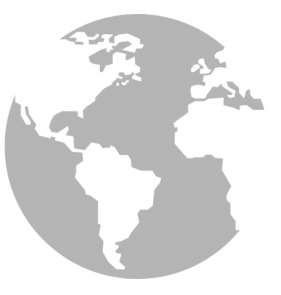IN THE CHARTS
TRACKS
VIDEOS
ABOUT
Nadishana is a multi-instrumentalist, composer, and producer from Siberia, who creates his own unique and innovative approach to world fusion music - the creative synthesis of different musical traditions of the world on the basis of contemporary technologies. He plays more than 200 instruments of the world, including self-created ones.
He elaborated the unique playing technique on each of his instruments and his own approach to advanced digital audio editing called "sound microsurgery."
In 1990, along with studying in Saint Petersburg, V. Nadishana began his self-education in playing guitar. Then he became seriously interested in ethnic music and mastered other instruments: sitar, mandola, chanzy, bouzouki, Jew's harp, kou xiang, khomus, morsing, ethnic percussion (darabuka, hang, udu, frame drums, berimbao); winds (bansuri, quena, overtone flutes, kalyuka, zhaleyka, gayda, hu-lu-si, duduk, bawu, tsaaj nplaim), fretless bass. Besides, he has created some experimental musical instruments: dzuddahord, pruzhingum, plastrimbaphon, rablorrum, ghostcatcher, pin-sansa, rod-spring gamelan, banbang, etc.
During his living in a small village in the south of Siberia, V. Nadishana established the "Sound Microsurgery Department" (SMD). SMD is a creative research laboratory handling a wide variety of projects: from mastering unknown ancient musical instruments to elaborating new creative methods of work with digital audio.
Nadishana Trio (Nadishana - Shehan - Metz)
Nadishana-Kuckhermann-Metz
Nadishana with Dzuddahord
Together with European innovative luthiers, Nadishana elaborated several hybrid experimental instruments such as futujara, hybrid kaval, and dzuddahord.
Nadishana renovated and developed the playing technique on several instruments. In fact, some of them were museum pieces, and he gave them a new birth. For example, he developed the tradition of playing on the Russian overtone flute kalyuka and enhanced its construction. He also has elaborated a new approach to playing on Chinese kou xiang and Jew's harp sets and has incorporated the very rare Hmong free reed flute tsaaj nplaim into modern fusion arrangements, etc.
Using a multi-track overdubbing method, V. Nadishana created some solo albums in his own studio. V. Nadishana possesses a huge collection of musical instruments (more than 200) from different parts of the world.
Since 2005, Nadishana lives in Berlin, where he works on several projects. Some of them are:
Nadishana-Kuckhermann-Metz (feat. two exceptional musicians David Kuckhermann and Armin Metz),
Nadishana Trio (Nadishana-Shehan-Metz), the band which plays modern ethnic music,
Nadishana-Gorelik Duo, and the
Solo program in which he presents about 20 rare ethnic instruments of the world.
In April 2008, the music of Nadishana was used for the choreography at Bolshoi Theater (Moscow, Russia). The choreographer Andrey Melanjin chose the track "Cat’s Love Song" for his miniature in modern style.
In 2012, Kuckhermann-Nadishana Duo was invited to be an opening act for the Dead Can Dance concerts in Europe, Turkey, and Russia.
There are some artists Nadishana worked/played with:
Steve Shehan (France), Kuzhebar Design (Russia - Siberia), Hadouk Trio (France), Eda Zari (Albania), Andreas Vollenweider (Switzerland), David Kuckhermann (Germany), Khool Zhingel (Russia - Ural), Emmanuelle Somer (France), Ian Melrose (Germany), Kelpie (Germany), Norland Wind (Germany), DJ Genetic Drugs (Germany), Kalimat Trio (Israel - Russia), Russian - Tuvinian Karma Knot (Tuva - Russia), Ursel Schlicht (New York), Mark Van Overmeire (Belgium), Mohamaad Ghibran (India), Beg An Dorchenn Project (Bretagne, France), Ensemble Ri (Russia), Capercaillies at the Threshold of Eternity (Russia), Mehi (India), OSUNA (Belgium), Paul Lawler (England), Phonic Duet (Russia), Siobhan Donaghy (England), James Sanger (France), Kit Walker (USA), Wolfgang Saus (Germany), Wolfgang Stindl (Ikarus project) (Austria), Earritation (Germany), Marion Kokott (Germany), Kailash Kokopelli (Germany), Ramesh Weeratunga (Sri Lanka)
You can hear examples of Nadishana's work with these artists on the Collaboration page.
Festival appearances (selection): "Ustuu-Huree," "The Sayan Ring Festival," "New Songs of the Old Land," Kihaus FolkFest, Musicastrada Festival, Israeli Didj fest, Le Rêve de l'Aborigène, Chisinau Ethno-Jazz Festival, SoUndSo festival, Folkest festival, Krutushka ethno-fest, Festival d’Arlempdes, Ancient Trance Jew’s Harp Festival, Folk’n’Fusion, Hamsafestival, Detva Folk fest, Conspiremus, Regioo, Oberegie, etc.
Nadishana is also the founder of the ethnofestival "Free of Karma Zone" (Siberia).
OTHER LINKS









